The Shambhavi School of Dance follows the Kuchipudi Gurukul Parampara. How do you sustain this practise in our time and age?
It is hard! To be very honest, I don’t have the number of students I could have had. I am a tough person; I don’t compromise. I am not in the race of having more students to generate a regular income. There is a lot of difference between learning from a guru and learning from a performing guru. Being the latter, my students have that benefit. Of course, when students leave, I feel bad, but I just think perhaps it was not meant for me. I have followed renowned gurus closely and I have realised one truth, be it Kelucharan Mohapatra or Pandit Birju Maharaj, at the end of their journey, they cannot create more than five who follow the path. I will be satisfied if at the end of my journey, I am able to produce five or six torch bearers, and I already have those students.
What is your approach to teaching?
With maturity, you see, you understand many things that you did not when you were younger. When I was younger, I often questioned the ways of my teachers. Today, when I look back, I understand why they did everything they did. I like teaching older, mature students who understand the purpose of their art. I like to be triggered by my students as much as I trigger them. I need to look at someone and feel like she has this specific potential that in turn makes me think about what I can create for her/him, exclusively!
Do you feel responsible for how your students turn out?
I feel sad. I feel hurt, not responsible. You see, I don’t just teach... I am a counsellor. Every child who comes to me comes with many life problems. Initially when they start, they are not able to handle these issues alongside their dancing. I chat with them about so many aspects of life in class.
Sometimes, I feel responsible in a way, because when we try to transform Kuchipudi, technically a dance drama technique, and a male-oriented form into a solo form for women especially, a lot of things have to change in her body. To find the right balance and the true essence of Kuchipudi, one needs to spend at least 12 years with the art form. People leave in between because of their own life issues. And that hurts me, because I feel I missed attending to some integral aspect in their training. And of course, nobody trains you to be a guru. You learn it through a process. I have made so many mistakes and learnt through them, and I still have a lot to learn.
Your daughter has diligently followed your footsteps. How does that make you feel?
Well, it has its pluses and minuses. I feel parents bring up their children fondly with the hope that they would be supported by them in their old age. Doesn’t the guru have the right to hope the same? When I have a prestigious show, while many students cooperate with me, some of them don’t. We are professionals, and we have commitments; perhaps, they look at it as a mere hobby. And parents don’t encourage a serious approach either. With my daughter, I could make her skip an exam, send her to ten dance contests, and I invested monetarily in her dance career because I realised the value of what I was doing. I can of course explain the significance of these things to other parents, but I cannot force them to follow suit. So obviously, Prateeksha is seen in more places, doing more things... Naturally, she is bound to get more opportunities and in turn improve. She is also very talented, and like in the case of any guru, I also pick my best students to perform lead roles in my productions. As a result of all this, there is a lot of strife and criticism from outsiders.
Yes, I am happy that my daughter is on this journey, but I also consider my students as my own children. We tour together, eat together, and exchange so many things, and when you know that this is how they feel, you cannot help it.

How has dance affected your relationship with her?
We spend a lot of time together. And when we started dancing together, I kept wondering how we could work this out. She has age and beauty on her side, and I have the experience. So I decided to use my own space and give her, her own space, so that we do not overshadow each other. I must also admit that in focussing on her, I have neglected some portion of my life. It has been chaotic managing two people in the limited time that I have, but I feel lucky that I get to perform with my daughter. Five years from now, I imagine, I can take things more lightly.
Do you feel dance is only an innate talent or can it also be developed in those who don’t necessarily have it in their genes?
If it is innate, it certainly becomes easier. But, I must also add that if they have the passion, sincerity, devotion, keep at it despite the demands and struggles of the industry and trust their Guru fully, they will go places. I often tell my students to give me three years of dedicated, devoted time, with the promise of making them achieve the calibre of a national dancer.
You have also worked with special children. Do you have the faith that dance can heal?
During a very difficult phase of my life, dance freed me of loneliness. So, yes certainly...
As a dancer who has performed on stage so many times, do you still feel the same excitement and joy when you step on stage?
On stage, I am a totally different person. I feel every single rhythm that passes through my nerves. But yes, off stage, I have changed a lot. When I was younger, I used to practice for months together with only an hour of sleep every day. I used to travel alone late at nights to record at places that were not safe. I was mad! I neither desire fame anymore, nor do I feel like I need to prove myself to anybody. Maybe now I realise what life is... I have seen a lot and now there is a sense of settlement and contentment.
The label artiste comes with a lot of baggage and preconceived notions. Does that ever bother you?
I feel that many artistes don’t really connect with what they do. I am sorry to say this! The first shloka that I was taught was Gurur Brahma, Gurur Vishnu, and when I chant it even today, I mean it. Whenever I hear the national anthem, tears roll down my cheeks without my realisation. I am emotional, and that is why I am an artiste. Many artistes when you interact with them, you realise, the art has still not touched their soul. When it touches your soul, and when you dance for dance’s sake, without insecurities and ambitions, you are naturally freed from these pressures. When you are confident about your dance, and when you develop the strength to fight your own battles, these things don’t matter anymore. And you have to fight your own battle; nobody can help you.
It is not easy to be a dancer, choreographer, teacher, artistic director. What do you tell yourself on the days you feel tired?
I speak to myself. I just say, ‘C’mon Vyju, you have to do this. After this, you are free, but for now you have to give it your all. C’mon, get up!’
I could never complain about my legs aching, nor could I watch another performance. It was just too much for me. I was really waiting for a way to escape. I quit dancing after my 10th grade
There was a point in your life when you hated dancing and wanted to give it up. What were your first impressions of dance?
When I was six or so, my parents initiated me in Bharatanatyam, and at that tender age I followed whatever they wanted me to do blindly. But I went to a very sophisticated convent school in Bengaluru, called Sophia's, and in all walks of life, there is, I feel, one kind of crowd that looks down upon you if you are a classical dancer. As a young girl, I was often left alone in school because I belonged to that clan. My father, on the other hand, was very strict about my dancing... If I did not attend dance class, I wasn’t allowed to go to school or play games. I was a very bright dancer, and my guru took me in every production. He was a perfectionist. I remember, in those days, for make-up, they would use these powders, and he would use his very rough hands to pat the powders on my soft skin. Every make-up session was torturous. And at the end of it, I would not look as good as I did without it. I also used to fall ill before every performance, and everyone would say it was evil eye. I was forced to drink raw eggs in milk to build my stamina. I could never complain about my legs aching, nor could I watch another performance. It was just too much for me. I was really waiting for a way to escape. I quit dancing after my 10th grade. Many years later did I discover the physical discipline and the art of expression that was set in me because of this intense rigour; I owe it to them.
The decision to pursue it again must have been hard...
I feel that whatever you do at a young age - the kind of people you interact with, the discipline that you inculcate, the stamina that you develop - has a very deep impact on your entire life. In fact, I was drawn to Kuchipudi in spite of a successful stint with theatre that I enjoyed very much, a banking job that I was holding then, and without any previous formal training in the art form. After I got married, I was very dependent on my husband. He was a busy film star, and I was very lonely. It was he who suggested that I pursue something that I like to keep myself occupied. Several conditions and opportunities came together and led me on this journey. I was meant for Kuchipudi.
Interviewed by Payal H Chhabria
3 comments Comments
SIGN UP TO RECEIVE OUR WEEKLY NEWSLETTER IN YOUR INBOX




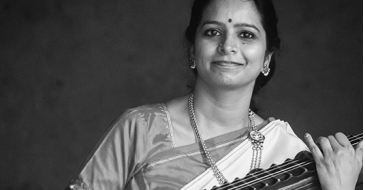
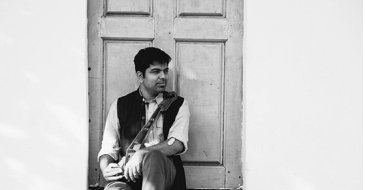
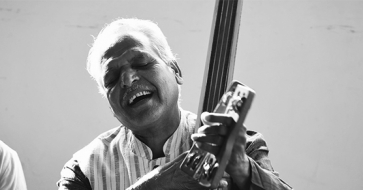
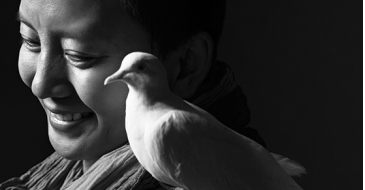
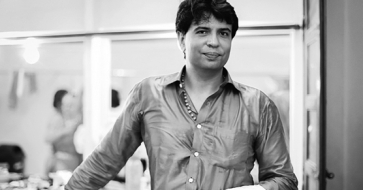
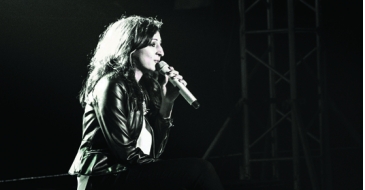
Sneha Lal
April 19, 2017
Suhansh Nair
April 19, 2017
Jayashree Iyer
April 19, 2017